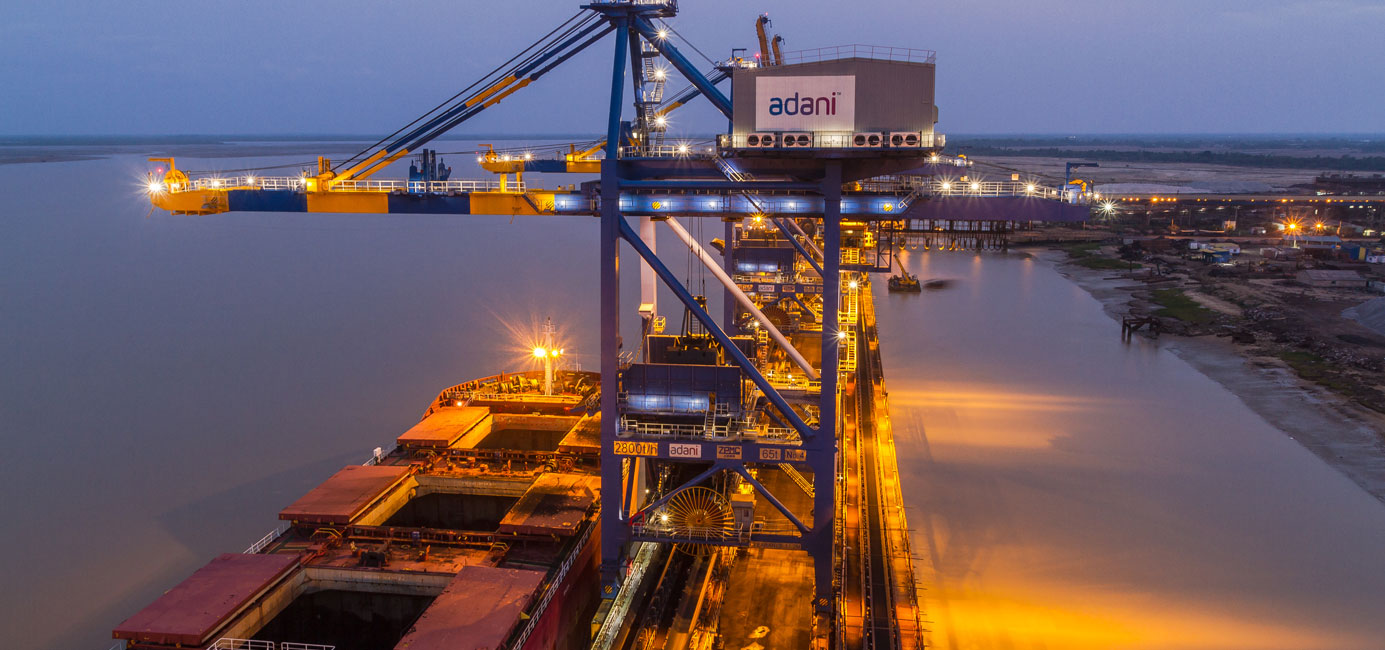Three Adani Firms Have Been Thrown Out Of A UN-Backed Climate Project For ‘Increasing’ Their Usage Of Fossil Fuels.
Adani Group spokeswoman expressed disappointment with the SBTi's decision because all three firms are in conformity with the stated regulation.

Adani Green Energy Ltd and Adani Transmission, & Adani Ports & Special Economic Zone were recently removed from the United Nations-backed Science Based Targets Initiative for their involvement in natural gas mining and expanding the group’s use of fossil fuels.
The step was made when the non-profit Eko (previously SumOfUs) and advocacy organisation Market Forces wrote to the United Nations Race to Zero, a worldwide climate change initiative, urging that the three corporations be removed.

The two organisations highlighted many grounds for the removal in their letter, including Adani Group’s support of fossil fuel growth through investing in coal mining projects like the Carmichael project in Australia and running India’s largest coal import terminal in Mundra, Gujarat.
Despite its carbon-neutral pledges, Adani Ports and Special Economic Zone plans to increase the amount of coal it transports and build new coal and LNG terminals, according to sources. According to Global Energy Monitor, the Adani Group is the world’s largest private developer of new coal. Adani intends to build at least 11 big new thermal coal mines in India. Adani’s known extractable coal reserves are more than 6 billion tonnes, resulting in 10130 mt of Carbon Dioxide emissions when mined and burnt.
According to the letter, the company also intends to increase its gas imports and build new infrastructure in 56 districts throughout India.
It was also revealed that Adani Group had planned in 2021 to develop a $4 billion coal-to-polyvinyl chloride (PVC) facility in Mundra, which would utilise an estimated 3.1 million tonnes per annum (mtpa) of imported coal, including 1 million tonnes per year (mtpa) of thermal coal. The 34,000-crore project, however, was halted in March of this year.

The UN’s Race to Zero campaign includes SBTi, which seeks to support corporations and financial institutions in reducing emissions and promoting best practices to attain net-zero objectives, and the Business Ambition for 1.5°C campaign.
Following an internal investigation, Adani Green Energy Ltd, Adani Ports & Special Economic Zone Limited, & Adani Transmission Limited will be removed from the Science Based Targets Initiative website & added to this list of companies removed by the SBTi’s updated Fossil Fuels Policy, the SBTi’s impact team wrote in an email response to Eko & Market Forces’ letter.
Ambuja Cement Ltd and ACC Limited, both Adani Group companies, are still participants of the SBTi project. Their letter, however, indicated that these will be closely monitored.
According to reports, an Adani Group spokeswoman expressed disappointment with the SBTi’s decision because all three firms are in conformity with the stated regulation.
He also stated that they had requested an explanation from the SBTi for their absence from the aspiration list. They are hopeful that, after a thorough examination, the SBTi would reconsider and change its judgement.
What is SBTi (Science Based Targets Initiative)?

SBTi was founded in the year 2015 as a collaboration among the Carbon Disclosure Project, the UN Global Compact and, the World Resources Institute, & the World Wide Fund for Nature. It is also the leading partner of the Business Ambition for 1.5°C campaign, which encourages businesses to set net-zero science-based targets in line with the 1.5°C goal.
A firm with any level of direct involvement in exploration, extraction, mining, or production of oil, natural gas, coal, & other fossil fuels, regardless of the percentage revenue generated by these activities, cannot commit to the SBTi, according to the SBTi’s policy on fossil fuel corporations.
Currently, approximately 5,000 (4961) companies are taking action, 2,602 companies have science-based targets, and 1,781 companies have made net-zero commitments.
The programme now has 138 Indian firms involved. 59 firms have accepted objectives, including Wipro, Airtel, Flipkart, and Godrej, among others.
Proofread & Published by Naveenika Chauhan




